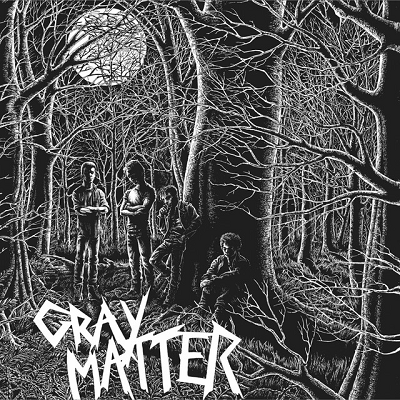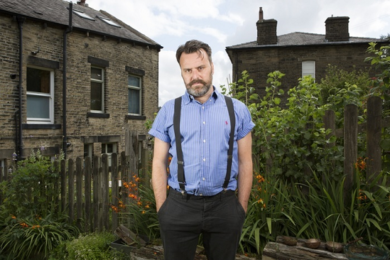3. Gray MatterFood for Thought / Take It Back

Hardcore punk played a significant part in my early teenage years, simply because those were the only type of bands who would ever play in Durham, because the straight edge meant they were all ages shows that required no alcohol licence and could be put on just about anywhere.
For reasons I still haven’t fathomed there was a strong hardcore scene in Durham, as there was in lots of post-industrial towns, such as Wigan and Bradford. I think it was mainly a product of skateboarding scene and down to the efforts of a couple of local older punks, Lecky and Sean Redman, who played in the bands Steadfast and Voorhees. They not only imported the entire aesthetic of a willfully obscure subculture from the US, but also had the gumption to book bands to come and play in our local youth clubs. So early on I saw bands like Born Against and Quicksand and dozens of smaller British and European bands playing to thirty people.
The bills were often a mix of hardcore, thrash metal, crust-punk and indie and pretty soon I’d formed my own punk band, Sour Face. We supported NOFX on our second gig and went on to play with all the greats of the time: Hellbastard, Lawnmower Deth, Leonard Cohen (maybe not him.)
We were terrible but we did dozens of shows while all still at school – our singer was thirteen and his voice hadn’t broken – and I learnt a lot about how to be a child operating in an adult world: booking gigs, getting press, doing radio interviews. Just making things happen in a cultural vacuum really. Creating a scene.
Hardcore was something to be experienced live; it happened in the moment, and barring a few exceptions – Minor Threat, Bad Brains, Dead Kennedys, Germs – very few hardcore records could hold my attention for more than a song or two. One band that me and my friends loved was Gray Matter, who had formed in Washington DC during what was dubbed “revolution summer”, which was Ian Mackaye and co’s attempt to move beyond the machismo of hardcore and produce something more artful, inclusive and nuanced in emotion – what became post-hardcore and emo. Food For Thought and its follow-up Take It Back EP are pure youth music. It’s melodic and fuelled by nothing but raw energy, disgust for authority and caffeine.
The fact it was released in 1985 – probably the lowest point for punk music – is interesting to me, and somehow it lit a few fuses in our corner of England. Sour Face covered the Gray Matter track ‘Caffeine Blues’. Being in a band felt like total freedom, something that I have pursued ever since.


